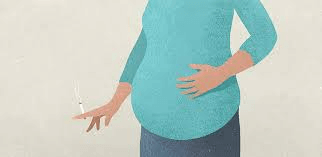The Impact of Smoking Just a Few Cigarettes a Day During Pregnancy: What You Need to Know

Pregnancy is a time when many lifestyle choices come under scrutiny, particularly when it comes to smoking. The question of whether smoking just one or two cigarettes a day is harmful to your baby is crucial. The short answer is yes—smoking even a small amount can pose risks to both you and your baby. In this article, we’ll delve into why this is the case, explore the potential dangers, and provide actionable strategies to help you reduce and eventually quit smoking.
Understanding the Risks of Smoking One or Two Cigarettes a Day
Immediate Health Risks for Your Baby
Even a small amount of smoking can have immediate and serious effects on your baby’s health. The chemicals in cigarettes, including nicotine and carbon monoxide, cross the placenta and affect your baby’s oxygen supply and development. These substances can increase the risk of complications such as:
- Reduced Birth Weight: Babies born to mothers who smoke, even minimally, are at a higher risk of being underweight, which can lead to a range of health issues.
- Respiratory Problems: Exposure to smoke can affect the development of your baby’s lungs, potentially leading to breathing difficulties.
Health Risks for the Mother
Smoking during pregnancy also puts the mother at risk for several health problems, including:
- Pregnancy Complications: Conditions such as placenta previa (where the placenta covers the cervix) and placental abruption (where the placenta detaches from the uterus prematurely) are more common among smokers.
- Increased Risk of Preterm Labor: Smoking can trigger early labor, which poses additional risks for both mother and baby.
The Challenge of Cutting Down
Why Quitting Completely Can Be Difficult
For many pregnant women, quitting smoking entirely can seem like an overwhelming task. The addiction to nicotine can be strong, and the emotional and psychological attachment to smoking can make it hard to stop abruptly. Here are some reasons why quitting is challenging:
- Nicotine Addiction: Nicotine creates a physical dependency, making it difficult to quit without experiencing withdrawal symptoms.
- Emotional Comfort: Many people use smoking as a coping mechanism for stress or anxiety, making the act of quitting emotionally challenging as well.
Benefits of Reducing Cigarette Consumption
Short-Term Health Improvements
If quitting cold turkey feels too daunting, reducing the number of cigarettes you smoke can still provide health benefits. Here’s how cutting back can help:
- Improved Oxygen Levels: Reducing cigarette intake can increase the amount of oxygen reaching your baby, leading to better overall health.
- Decreased Chemical Exposure: Lowering the number of cigarettes smoked decreases the amount of harmful chemicals entering your bloodstream and crossing the placenta.
Psychological Benefits
Successfully cutting down on smoking can also boost your confidence and motivation, making the goal of quitting altogether seem more achievable.
Strategies for Reducing Cigarette Intake
Practical Tips
- Smoke Only Half a Cigarette: One method to reduce consumption is to smoke only half of each cigarette. This technique can help in cutting down on nicotine intake gradually.
- Set Reduction Goals: Establish clear, incremental goals for reducing the number of cigarettes you smoke each day. This can make the process less overwhelming and more manageable.
Handling Cravings
Cravings are a significant challenge when trying to reduce or quit smoking. Here are some effective strategies for managing them:
- Healthy Substitutes: Opt for healthy snacks, drink water, or chew gum to distract yourself from cravings.
- Engage in Distractions: Keep yourself occupied with activities like puzzles, games, or organizing tasks to divert your attention from the urge to smoke.
Preparing to Quit Completely
Setting a Quit Date
Once you’ve successfully reduced your cigarette intake, setting a quit date is crucial. This date serves as a concrete goal and helps in preparing both mentally and physically for the cessation process.
Planning for Withdrawal Symptoms
Withdrawal symptoms can be challenging but knowing what to expect can help you manage them better. Common symptoms include irritability, anxiety, and cravings. Having strategies in place to cope with these symptoms can ease the transition.
Seeking Support
Professional Resources
Consulting with healthcare professionals such as your midwife or GP can provide valuable support and guidance. They can offer resources, recommend cessation programs, and help you manage withdrawal symptoms.
Support Networks
Joining a support group can be incredibly beneficial. These groups offer encouragement, share success stories, and provide practical advice for quitting smoking.
What to Expect After Quitting
Withdrawal Process
Understanding the withdrawal process can help in managing expectations. Symptoms typically start within a few hours of quitting and may last for several weeks.
Coping Strategies
Develop coping mechanisms such as exercise, relaxation techniques, and engaging in hobbies to manage withdrawal symptoms and reduce the temptation to smoke.
Long-Term Health Benefits
Enhanced Maternal and Baby Health
The long-term benefits of quitting smoking are substantial. These include improved health outcomes for your baby, such as a lower risk of developmental issues and a healthier birth weight. For you, quitting smoking reduces the risk of pregnancy complications and improves overall well-being.
Conclusion
Smoking, even in minimal amounts, poses significant risks to both you and your baby. While quitting can be challenging, reducing your cigarette intake and eventually quitting altogether is vital for ensuring the health and safety of both mother and child. By understanding the risks and implementing effective strategies, you can make meaningful progress toward a smoke-free life and a healthier future for your family.
FAQs
- Is smoking one or two cigarettes a day harmful during pregnancy?
Yes, even small amounts of smoking can be harmful to both the baby and the mother, increasing the risk of complications. - What are the immediate effects of minimal smoking on my baby?
Immediate effects can include reduced birth weight and respiratory issues due to the decreased oxygen supply to the baby. - How can I manage cravings while trying to quit smoking?
Effective strategies include using healthy substitutes, engaging in distracting activities, and seeking support from professionals or support groups. - What are some practical tips for reducing cigarette intake?
Tips include smoking only half of each cigarette, setting gradual reduction goals, and employing distraction methods to handle cravings. - What benefits can I expect after quitting smoking during pregnancy?
Benefits include improved birth outcomes, enhanced maternal health, and reduced risk of complications for both mother and baby.






